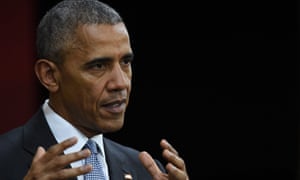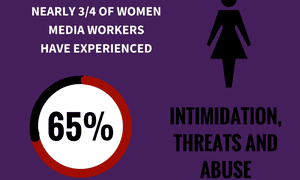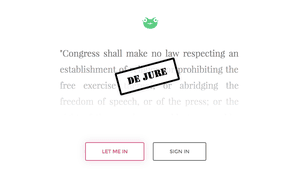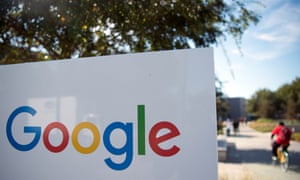Marxism & Pluralism Essay
Q: The development of new/digital media means the audience is more powerful in terms of consumption and production. Discuss the arguments for and against this view.
New and digital media has created a range of opportunities to the public and to businesses. It has brought not only media potential, by togetherness within the world. However, new and digital media platform has brought about changes, changes that seemed impossible to attain until now and this will be discussed within this essay.
Audiences have become more powerful in terms of consumption and production to a large extent. This is because, big institutions can no longer inflict their dominance and power over audience members as they used to. Institutions such as businesses and media organisations used to manipulate audience members to purchase a product or consume a piece of news without having the time to challenge them. For example, a news institution like The Sun could inflict their own ideologies regarding politics and it will simply be consumed by passive consumers. However the tables have turned to such an extent, that there has essentially been a power reversal. Audience members have the ability to speak out, and not to be the passive consumers that they once were and institutions have realised this. In fact, institutions who abused their power by inflicting their ideologies upon their consumer base has left a tremendous impact on their survival as an industry as a whole. Audience's trying to gain news about the outside world seemed to be a necessity, something that they must obtain, now they can access news for free and can essentially continue to get what they want without even demanding for it. This has lead to a tremendous deduction in power from institutions in to the hands of the audience member. A Marxist would argue that there would have been the elite at the top of the chain who were the ones trying to dumb-down audience members in order to attain their power. And to a large extent it is true. Society was under the influence of Marxism, where rich powerful men/women would use their power and products in order to keep control of society and that they remain at the top. However, this has no changed, with audience members now gaining a voice to argue against certain values and interpretations that are given out.
In addition, the creation of citizen journalism feeds in to the fact that audience are now active producers rather than passive consumers. The birth of the digital age has widened the opportunities and availability for the audience to interact and participate in news. Over the years, citizen journalism has boomed starting with the first ever encounter; the Rodney King case. This was an offence done by the police of LA who would have gotten away with treason, by creating a false story. However, it was thank to this citizen journalism of recording the event, which brought the world, including the government the realisation that there is corruption upon its justice system. There has been many more encounters where citizen journalism has seen to be even more important than the Daily Mail reporting "cat climbing trees". It show that citizen journalism have given news organisations something to investigate, something to report on. In a way, citizen journalism has proved that individuals who interact with digital media, can be as important as journalists are simply due to the information they are reporting on key events.
On the other hand, audiences may have become the least powerful (still) even after the introduction of the new and digital media platform. This is because although over the years, these institutions have been trying to dumb-down their audiences, they have gained a loyal market full of customers who are loyal to the brand. What has happened essentially is that customers want to receive their news by a certain institution because they have built a strong relation with it for numerous years and the brand loyalty can take control of them than the internet can. Institutions such as The Daily Mail have created a strong brand and image to customers, that over the years they will have so many loyal customers they cant really be challenged due to this loyalty. Institutions do take advantage of this for example, The Daily Mail has decided to go under a pay wall where there will be a 10% premium news available to those who subscribe. They wouldn't just add an extra 10% of news if they felt that they wont get anyone to subscribe. The fact is, is that they are well aware of their consumer base, and they know that there are a lot of loyal customers who use their site as a number one source for new, therefore compelling them to subscribe. This example is recent, and shows that there is still even to this day power in the hands of institutions.
Finally, the main problem with the digital age is that, users (society) have become so active they are simply reporting on things that are unnecessary or just are simply degrading news quality. One of the prime reasons for the internet's creation was the allow people to connect to one another from a greater distance. But, it has advanced tremendously since then, where the digital platform allows people to hare their views and ideologies on the web where other people can read them. Although this is innovation we all demanded (a voice), it has brought about many problem. Like Andrew Keen once said "web pages and blogs are like a million monkey's typing nonsense". This is clearly the problem today. We (the audience/consumers/producers), have been so caught up with the idea that the internet allows us to do virtually anything, but we don't stop and think about misleading others with the content we publish. The internet is made up of many people's views and values, and therefore there is bound to be a few hundred who will read the post and believe it. This is degrading news, and powerful institutions have tried to tackle this by showing their significance. By building an 'illusion' of truthful news. There are now websites such as the BBC which are one of the most used web pages currently online, simply due to the trust it has developed in the users. This goes to show that although the internet makes the public all more powerful, it also creates an opportunity for the power institutions to re-brand themselves whilst a 'internet war' is occurring.
Overall, I believe that it is the audience that have gained the power to consume and create their content rather than institutions. New and digital media has brought more power towards the people rather than institutions. It is the big name media organisations that have been hit the most due to new and digital media, with profits staggering low and getting lower by the month just show that they are no longer relevant to consumers as they can get what they need elsewhere via the internet. Audiences have had the ability to comment on stories they offend them, they can look at other sites for proof. These are all things that didn't exist before new and digital media. Some would say tat we live in a pluralist society, where there is a classless system. I believe this to be true as institutions are now wary on how they deliver news and are more cautious when giving news. They fear the power the audience members have and want to maintain this sense of loyalty amongst them.
New and digital media has created a range of opportunities to the public and to businesses. It has brought not only media potential, by togetherness within the world. However, new and digital media platform has brought about changes, changes that seemed impossible to attain until now and this will be discussed within this essay.
Audiences have become more powerful in terms of consumption and production to a large extent. This is because, big institutions can no longer inflict their dominance and power over audience members as they used to. Institutions such as businesses and media organisations used to manipulate audience members to purchase a product or consume a piece of news without having the time to challenge them. For example, a news institution like The Sun could inflict their own ideologies regarding politics and it will simply be consumed by passive consumers. However the tables have turned to such an extent, that there has essentially been a power reversal. Audience members have the ability to speak out, and not to be the passive consumers that they once were and institutions have realised this. In fact, institutions who abused their power by inflicting their ideologies upon their consumer base has left a tremendous impact on their survival as an industry as a whole. Audience's trying to gain news about the outside world seemed to be a necessity, something that they must obtain, now they can access news for free and can essentially continue to get what they want without even demanding for it. This has lead to a tremendous deduction in power from institutions in to the hands of the audience member. A Marxist would argue that there would have been the elite at the top of the chain who were the ones trying to dumb-down audience members in order to attain their power. And to a large extent it is true. Society was under the influence of Marxism, where rich powerful men/women would use their power and products in order to keep control of society and that they remain at the top. However, this has no changed, with audience members now gaining a voice to argue against certain values and interpretations that are given out.
In addition, the creation of citizen journalism feeds in to the fact that audience are now active producers rather than passive consumers. The birth of the digital age has widened the opportunities and availability for the audience to interact and participate in news. Over the years, citizen journalism has boomed starting with the first ever encounter; the Rodney King case. This was an offence done by the police of LA who would have gotten away with treason, by creating a false story. However, it was thank to this citizen journalism of recording the event, which brought the world, including the government the realisation that there is corruption upon its justice system. There has been many more encounters where citizen journalism has seen to be even more important than the Daily Mail reporting "cat climbing trees". It show that citizen journalism have given news organisations something to investigate, something to report on. In a way, citizen journalism has proved that individuals who interact with digital media, can be as important as journalists are simply due to the information they are reporting on key events.
On the other hand, audiences may have become the least powerful (still) even after the introduction of the new and digital media platform. This is because although over the years, these institutions have been trying to dumb-down their audiences, they have gained a loyal market full of customers who are loyal to the brand. What has happened essentially is that customers want to receive their news by a certain institution because they have built a strong relation with it for numerous years and the brand loyalty can take control of them than the internet can. Institutions such as The Daily Mail have created a strong brand and image to customers, that over the years they will have so many loyal customers they cant really be challenged due to this loyalty. Institutions do take advantage of this for example, The Daily Mail has decided to go under a pay wall where there will be a 10% premium news available to those who subscribe. They wouldn't just add an extra 10% of news if they felt that they wont get anyone to subscribe. The fact is, is that they are well aware of their consumer base, and they know that there are a lot of loyal customers who use their site as a number one source for new, therefore compelling them to subscribe. This example is recent, and shows that there is still even to this day power in the hands of institutions.
Finally, the main problem with the digital age is that, users (society) have become so active they are simply reporting on things that are unnecessary or just are simply degrading news quality. One of the prime reasons for the internet's creation was the allow people to connect to one another from a greater distance. But, it has advanced tremendously since then, where the digital platform allows people to hare their views and ideologies on the web where other people can read them. Although this is innovation we all demanded (a voice), it has brought about many problem. Like Andrew Keen once said "web pages and blogs are like a million monkey's typing nonsense". This is clearly the problem today. We (the audience/consumers/producers), have been so caught up with the idea that the internet allows us to do virtually anything, but we don't stop and think about misleading others with the content we publish. The internet is made up of many people's views and values, and therefore there is bound to be a few hundred who will read the post and believe it. This is degrading news, and powerful institutions have tried to tackle this by showing their significance. By building an 'illusion' of truthful news. There are now websites such as the BBC which are one of the most used web pages currently online, simply due to the trust it has developed in the users. This goes to show that although the internet makes the public all more powerful, it also creates an opportunity for the power institutions to re-brand themselves whilst a 'internet war' is occurring.
Overall, I believe that it is the audience that have gained the power to consume and create their content rather than institutions. New and digital media has brought more power towards the people rather than institutions. It is the big name media organisations that have been hit the most due to new and digital media, with profits staggering low and getting lower by the month just show that they are no longer relevant to consumers as they can get what they need elsewhere via the internet. Audiences have had the ability to comment on stories they offend them, they can look at other sites for proof. These are all things that didn't exist before new and digital media. Some would say tat we live in a pluralist society, where there is a classless system. I believe this to be true as institutions are now wary on how they deliver news and are more cautious when giving news. They fear the power the audience members have and want to maintain this sense of loyalty amongst them.





